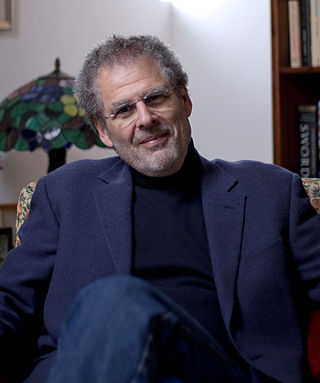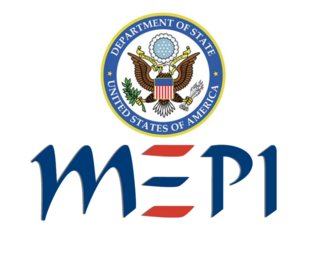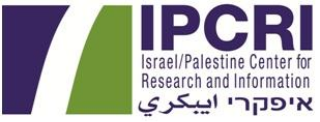
Arab–Israeli peace projects are projects to promote peace and understanding between the Arab League and Israel in different spheres. These are part of a broader attempt at a peace process between Palestinians and Israelis. Sponsors of such projects can be found both in Israel and Palestine.

Seeds of Peace is a peacebuilding and leadership development non-profit organization headquartered in New York City. It was founded in 1993. As its main program, the organization brings youth and educators from areas of conflict to its camp in Maine. It also provides local programming to support Seeds of Peace graduates, known as Seeds, once they return home.

Taglit-Birthright Israel, also known as Birthright Israel or simply Birthright, is a free ten-day heritage trip to Israel, Jerusalem, and the Golan Heights for young adults of Jewish heritage between the ages of 18 and 26. The program is sponsored by the Birthright Israel Foundation, whose donors subsidize participation.

The Arava Institute for Environmental Studies (AIES) is an academic studies and research institute located at Kibbutz Ketura on the Israeli side of the Arava Valley. Under the motto that "nature knows no borders", AIES seeks to train future leaders of the Middle East in environmental issues so that they will be able to cooperate in solving regional environmental problems. The Arava is a sparsely populated desert valley that connects the Dead Sea region with the Red Sea, and is part of the Jordan Rift Valley. Between the Dead Sea and the cities of Eilat and Aqaba, the Arava forms the border between Israel and Jordan.

Naim Stifan Ateek is a Palestinian priest in the Anglican Communion and founder of the Sabeel Ecumenical Liberation Theology Center in Jerusalem. He has been an active leader in the shaping of the Palestinian liberation theology. He was the first to articulate a Palestinian theology of liberation in his book, Justice, and only Justice, a Palestinian Theology of Liberation, published by Orbis in 1989, and based on his dissertation for his degree in theology. The book laid the foundation of a theology that addresses the conflict over Palestine and explores the political as well as the religious, biblical, and theological dimensions. A former Canon of St. George's Cathedral, Jerusalem, he lectures widely both at home and abroad. His book, A Palestinian Christian Cry for Reconciliation, was published by Orbis in 2008, followed by A Palestinian Theology of Liberation, 2017.

Ameinu is an American Jewish Zionist organization. Established in 2004 as the successor to the Labor Zionist Alliance, it is the continuation of Labor Zionist activity in the United States that began with the founding of Poale Zion, which came together in the period 1906.

The Peres Center for Peace, located in Jaffa, Israel, is an independent non-profit, non-governmental, and non-political organization founded in 1996 by Nobel Peace Laureate and former President of Israel Shimon Peres. Its aim is to further Peres' vision of people in the Middle East working together to build peace through socio-economic cooperation and development and people-to-people interaction.

Bernard Avishai is an Adjunct Professor of Business at Hebrew University of Jerusalem. He lives in Jerusalem and the United States. He has taught at Duke University, the Massachusetts Institute of Technology (MIT), and Dartmouth College, and was director of the Zell Entrepreneurship Program at the Interdisciplinary Center Herzliya in Israel. From 1998 to 2001 he was International Director of Intellectual Capital at KPMG LLP. Before this he headed product development at Monitor Group, with which he is still associated. From 1986 to 1991 he was technology editor of Harvard Business Review. A Guggenheim Fellow, Avishai holds a doctorate in political economy from the University of Toronto. Before turning to management, he covered the Middle East as a journalist. He has written many articles and commentaries for The New Yorker, The New York Review of Books, Harvard Business Review, Harper's Magazine and other publications. He is the author of three books on Israel, including the widely read The Tragedy of Zionism, and the 2008 The Hebrew Republic.

The U.S.-Middle East Partnership Initiative (MEPI) is a United States State Department program that fosters meaningful and effective partnerships between citizens, civil society, the private sector, and governments in the Middle East and North Africa (MENA) region to resolve local challenges and promote shared interests in the areas of participatory governance and economic opportunity and reform.
The Portland Trust was established to promote peace and stability between Israelis and Palestinians through economic development. It works with a range of partners to help develop the Palestinian private sector and relieve poverty through entrepreneurship in Israel. It facilitates sustainable economic development through catalysing initiatives to build quality employment and thriving private sectors. Their work advances the growth of strong societies in Israel and Palestine based on socio-economic mobility and inclusion for minorities and marginalised groups.

The Center for Jewish-Arab Economic Development (CJAED), located in Herzliya Pituach, Israel, is a non-profit, non-governmental organization founded in 1988 by Ms. Sarah Kreimer and a coalition of Jewish and Arab businesspeople. CJAED works to promote Jewish-Arab economic cooperation as well as develop a thriving Arab sector in order to establish peace, prosperity and economic stability in Israel and the region. The center's main premise is that Israel's primary resource is its people, therefore a vibrant and stable economy requires an integrated society. In 2010, CJAED was recognized as one of the "Ten Top Israeli Business Ventures" that promote peace in the Middle East.

The Israel/Palestine Center for Research and Information is a joint Israeli/Palestinian NGO and public policy think tank based in Jerusalem working towards building partnerships in Israel/Palestine. Under shared Israeli-Palestinian leadership, IPCRI carries out research and projects in various fields from economic development to environmental sustainability. IPCRI also facilitates public outreach and track two negotiations between Israelis and Palestinians.
The Valley of Peace initiative is an effort to promote economic cooperation between Israel, Jordan, and Palestine based around efforts and joint projects in the Arava/Arabah Valley, along which runs the southern portion of the Israel - Jordan border. It received the personal attention and support of Shimon Peres, President of Israel. The initiative involved ongoing joint efforts by regional leaders to launch joint new industrial and economic projects, which will create new local businesses and job growth, and promote ongoing cooperation.

The Alliance for Middle East Peace (ALLMEP) is a group of over 100 leading non-governmental organizations working to foster reconciliation between Israelis and Palestinians, and between Arabs and Jews in Israel and the wider region.
Silatech is an organization based in Qatar, founded by Her Highness Sheikha Mozah bint Nasser. The current CEO of this organization is Mr. Hassan Al Mulla. Silatech means "your connection" in Arabic. The initiative seeks to create jobs and economic opportunities for young people in the Arab world, targeting 18- to 30-year-olds. by 2016, Silatech claims to have helped 200,000 young Arabs to obtain jobs. The initiative’s model involves building partnerships with governments, private companies and NGOs.

Israeli–Palestinian economic peace efforts refers to efforts to promote joint economic projects between Israelis and Palestinians, as a pathway to reach peace between the two groups.
Our Generation Speaks (OGS) is a fellowship program and startup incubator whose mission is to bring together young Israeli and Palestinian leaders through entrepreneurship. OGS works in partnership with the Heller School for Social Policy and Management and MassChallenge to give OGS Fellows the tools to develop businesses that generate significant social and economic value in the Middle East.
Yadin B. Kaufmann is an Israeli-American technology investor, social entrepreneur and writer.
The Negev Institute for Strategies of Peace and Development (NISPED) is a non-profit based in Israel which promotes peace and development through education, training, and community projects. It was founded in 1997 by Dr. Yehuda Paz.
Nivine Sandouka is a Palestinian feminist and peace activist from East Jerusalem. She is the Regional Chief of staff of the Alliance for Middle East Peace.













